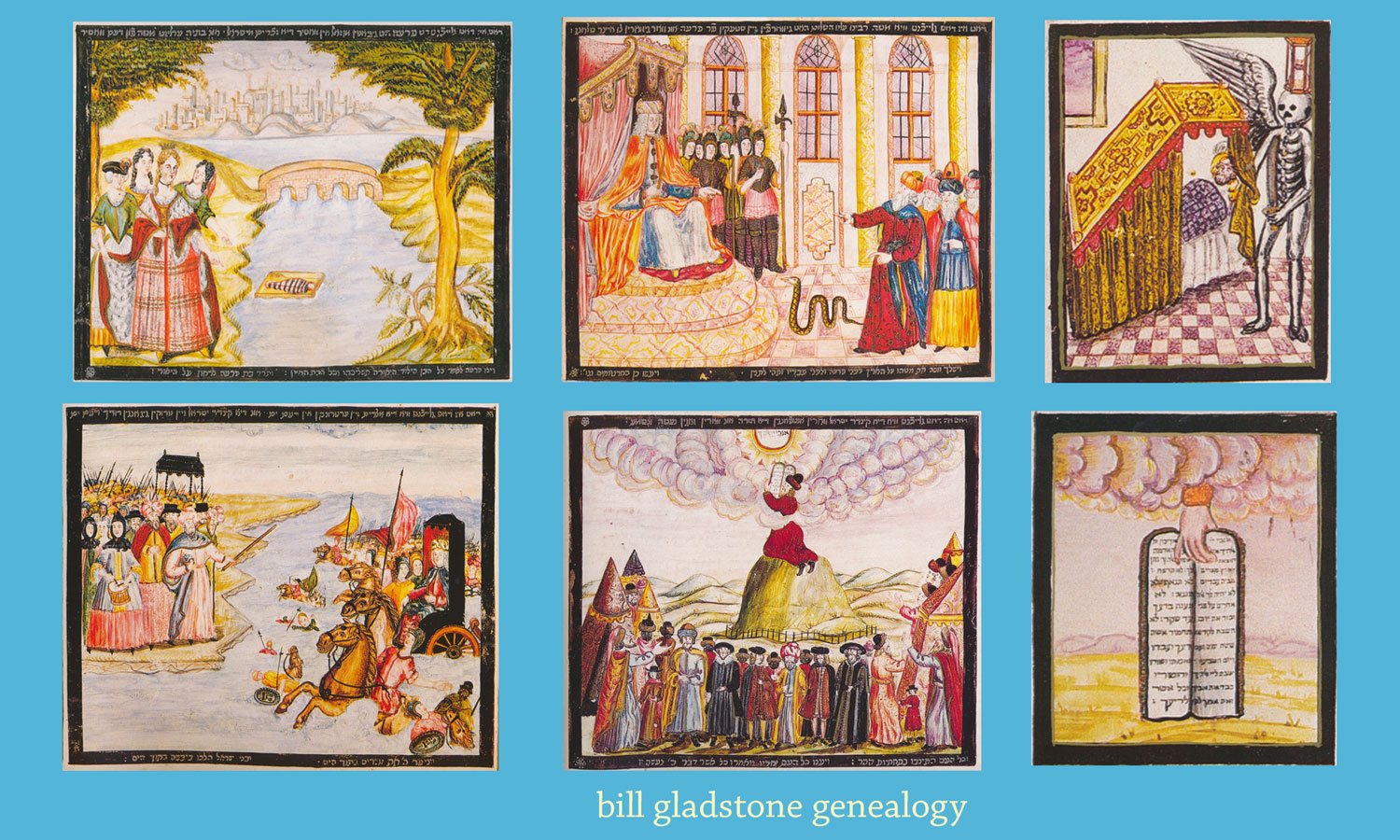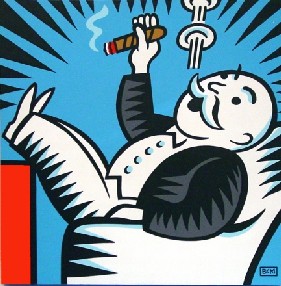My uncles, aunts and cousins on the Glicenstein [Gladstone] side always perk up when I mention the huge unclaimed fortune that is supposedly hidden somewhere in our extended family tree.
Their eyes grow big when they hear that an alleged distant cousin of ours, a wealthy brewery owner, supposedly died intestate (without an heir) in Texas sometime between 1900 and 1910, leaving at least $3 million unclaimed. The figure goes up to $40 million in some versions of the story.
I first heard the tale about twenty years ago from a certain Mr. Gluckstein, a second cousin once removed whom I tracked down from a listing in the Toronto phone book. Since then, variations have reached me from four other widely separated sources.
To this day, distant Glicensteins relations scattered around the world who know little or nothing of each other still recount handed down anecdotes about the lawyers who offered to help their grandparents collect the inheritance in exchange for a stiff fee in advance and an eventual cut of the bounty. According to Mr. Gluckstein, his family rejected the lawyers’ offer because the risks seemed too great and the terms too steep.
Another new found relation, Mr. Glickenstein of Brooklyn, identified the rich brewer as a great uncle of his father. By Glickenstein’s account, the man had left Russia Poland to avoid the army, had worked in a brewery in England, and had moved about 1890 to Texas and thereafter founded a brewery of his own.
Glickenstein’s father, the owner of a coat factory in Lodz, reportedly sold it about 1910 upon hearing of the unclaimed millions awaiting him in America. I’ve heard of other relations who likewise left the Lodz area for America with the identical dream of acquiring the Glicenstein fortune. Not one of them ever saw a penny of it.
Although I’ve found a Glicenstein wine merchant in nineteenth century London, I’ve never found a trace of the brewer in Texas censuses, death registries, ship’s passenger lists and other sources. Was he a fantasy concocted by bogus lawyers as part of a sophisticated scam?
Like most undocumented family stories, this one must be regarded with some skepticism. I have heard of only one instance where a Jewish genealogist came into some money as a result of his research. Years ago, the now defunct journal Toledot reported that someone found a distant cousin who had died alone in a Manhattan apartment, leaving a few thousand dollars stashed in a mattress. Hardly the stuff of dreams.
Recently I discovered evidence that the elusive Glicenstein fortune may have been a hoax all along. Charlotte Sholod, a New York art historian, has informed me that Emanuel Romano, son of sculptor Chanoch (Enrico) Glicenstein, recorded a relevant episode in his unpublished memoirs.
About 1909, when Romano was a schoolboy in Rome, a teacher showed him a newspaper headline “$40 Million Inheritance Left by a Rich American Uncle” and asked if it were true.
Romano wrote: “I had already heard that my relatives were speaking of this, and I said, ‘Yes, it is true.’ Morino [the teacher] opened his eyes and his mouth ‘Forty million dollars? Are you sure this uncle is a member of your family?’ I answered that a cousin of ours was in contact with lawyers in the United States. Morino’s eyes became still larger. ‘Well, you will become a very rich boy,’ said he in a wondering air. I did not answer, but my expression was of a boy who was sure that the inheritance would come his way . . .
“During that whole year he continuously asked me for news about the inheritance, and I continued to tell him about the progress of our lawyers in getting it. But we knew that the whole story was a hoax. Yet on this hoax, a cousin Wilhelm Scwarz of Warsaw lived on credit for a whole year. . . .”
Hoax or not, such a tale is worth its weight in gold, and makes a welcome chapter in any family history. The plain truth is that family tree research is usually a slow, laborious process that involves considerable out of pocket expenses for postage, photocopies, archival fees and so on. While it offers its own significant rewards, material gain is rarely one of them. ♦
© 1997, 2012.






